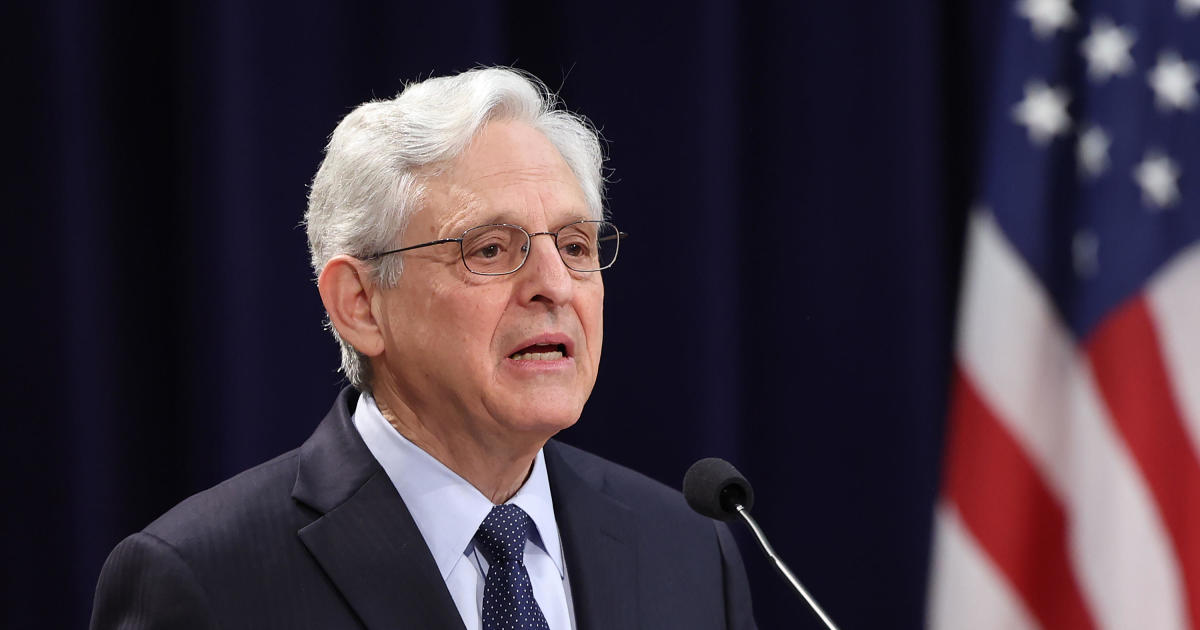The Justice Department announced on Friday that it will not prosecute Attorney General Merrick Garland after the House voted to hold him in contempt of Congress for defying subpoenas for audio recordings of President Biden’s interview with special counsel Robert Hur. Carlos Uriarte, the assistant attorney general, informed House Speaker Mike Johnson in a letter that it is the Justice Department’s policy not to bring contempt charges against an official who refuses to turn over subpoenaed information subject to a president’s assertion of executive privilege.
President Biden invoked executive privilege over the audiotapes of his interviews with Hur and directed Garland not to release the materials sought by the House Judiciary and Oversight and Accountability Committees. The Republicans on the panel had requested the recordings as part of their impeachment inquiry into the president.
Uriarte, who leads the Justice Department’s Office of Legislative Affairs, stated, “Consistent with this longstanding position and uniform practice, the Department has determined that the responses by Attorney General Garland to the subpoenas issued by the Committees did not constitute a crime, and accordingly the Department will not bring the congressional contempt citation before a grand jury or take any other action to prosecute the Attorney General.”
The House voted 216 to 207 on Wednesday to hold Garland in contempt, escalating the dispute over the recordings that arose from Hur’s investigation into the president’s handling of classified documents. Hur’s report, released in February, criticized the president’s memory and stated that Mr. Biden could present himself as a “sympathetic, well-meaning, elderly man with a poor memory” to a jury. The special counsel found that the president “willfully retained and disclosed” classified materials after his vice presidency.
President Biden’s interview with Hur lasted five hours, and he provided written answers to the special counsel’s questions. The Judiciary and Oversight Committees issued subpoenas for audio recordings and other materials, including interview transcripts, after Hur released his report. The Justice Department provided a transcript of Hur’s interview with Mr. Biden and his ghostwriter, Mark Zwonitzer, but declined to release the audio files in April.
Just before the two GOP-led committees were going to consider a contempt of Congress resolution, the Justice Department’s decision not to prosecute Garland was met with mixed reactions. Some Democrats praised the move, citing the importance of upholding executive privilege, while Republicans criticized the decision, arguing that it sets a dangerous precedent for future investigations.
In response to the Justice Department’s announcement, House Speaker Mike Johnson expressed disappointment, stating, “The American people deserve transparency and accountability from their government officials, and the refusal to comply with congressional subpoenas undermines the checks and balances that are essential to our democracy.”
Meanwhile, Attorney General Garland maintained that he acted in accordance with the law and the president’s directive to protect executive privilege. He emphasized the importance of upholding the principle of separation of powers and the constitutional authority of the president to assert executive privilege in certain circumstances.
The dispute over the audio recordings and the subsequent contempt vote against Garland has reignited debates over the limits of executive privilege and congressional oversight. Critics argue that the president’s invocation of executive privilege in this case was an attempt to shield potentially damaging information from public scrutiny, while supporters of the decision contend that it is essential to protect the confidentiality of presidential communications.
As the political fallout from this controversy continues to unfold, it remains to be seen how future administrations will navigate the delicate balance between executive privilege and congressional oversight in their interactions with Congress. The outcome of this dispute could have far-reaching implications for the relationship between the executive and legislative branches of government and the accountability of public officials to the American people.









